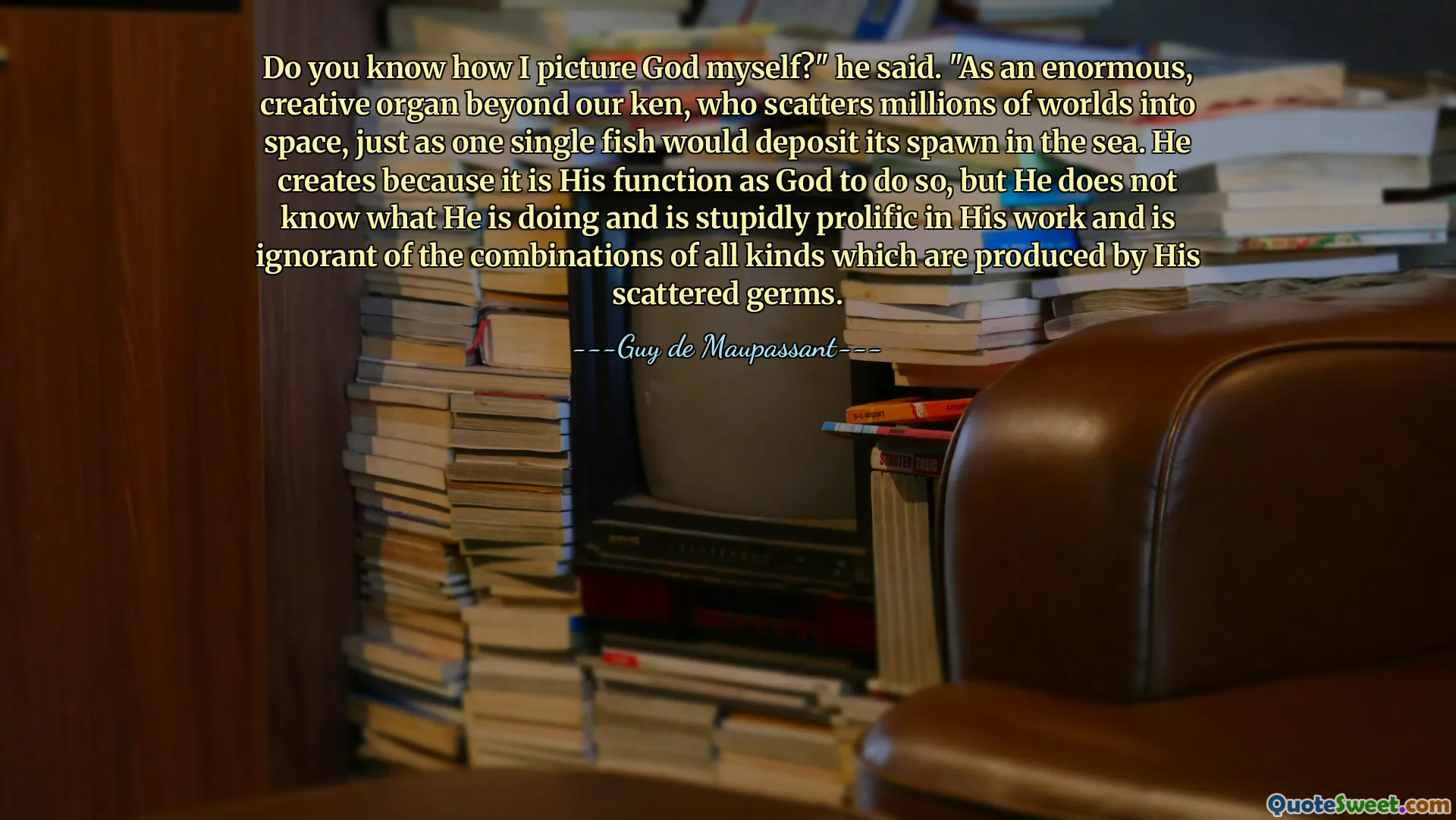
Do you know how I picture God myself?" he said. "As an enormous, creative organ beyond our ken, who scatters millions of worlds into space, just as one single fish would deposit its spawn in the sea. He creates because it is His function as God to do so, but He does not know what He is doing and is stupidly prolific in His work and is ignorant of the combinations of all kinds which are produced by His scattered germs.
This vivid portrayal of a divine being challenges traditional notions of omniscience and intentionality in creation. By imagining God as an enormous, creative organ that indiscriminately spawns worlds like fish depositing spawn in the sea, the description emphasizes the vastness and chaotic nature of the universe's origins. It suggests that creation is an act driven by an inherent function rather than conscious purpose or comprehension. This perspective invites contemplation on the human tendency to anthropomorphize the divine and the universe's inexplicable complexity. It also raises profound questions about intentionality, knowledge, and the nature of divine omnipotence. The imagery of a clueless creator produces a sense of wonder at the randomness and proliferation of worlds, highlighting the idea that the universe may be a product of sheer, unintentional fertility rather than a deliberate act of a purposeful deity. Such a viewpoint can be both humbling and disconcerting, as it confronts the idea of a creator who is ignorant of the outcomes of his own creation, thereby emphasizing the mystery and seemingly indifferent grandeur of existence. This narrative encourages viewers to reflect on the limits of human understanding when faced with the universe's boundless scope, and how our perceptions of divine intelligence shape our worldview and philosophy about existence itself.











